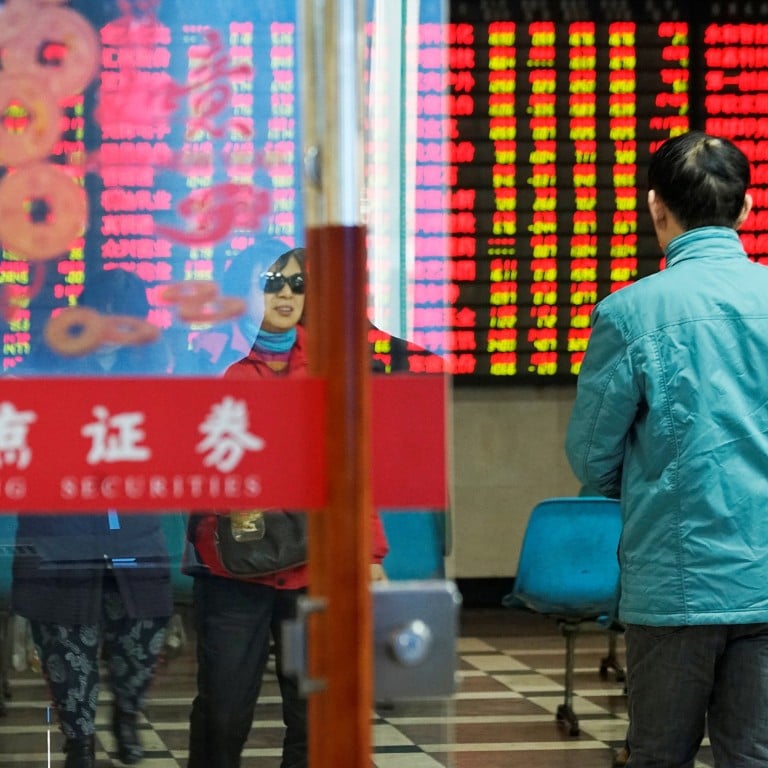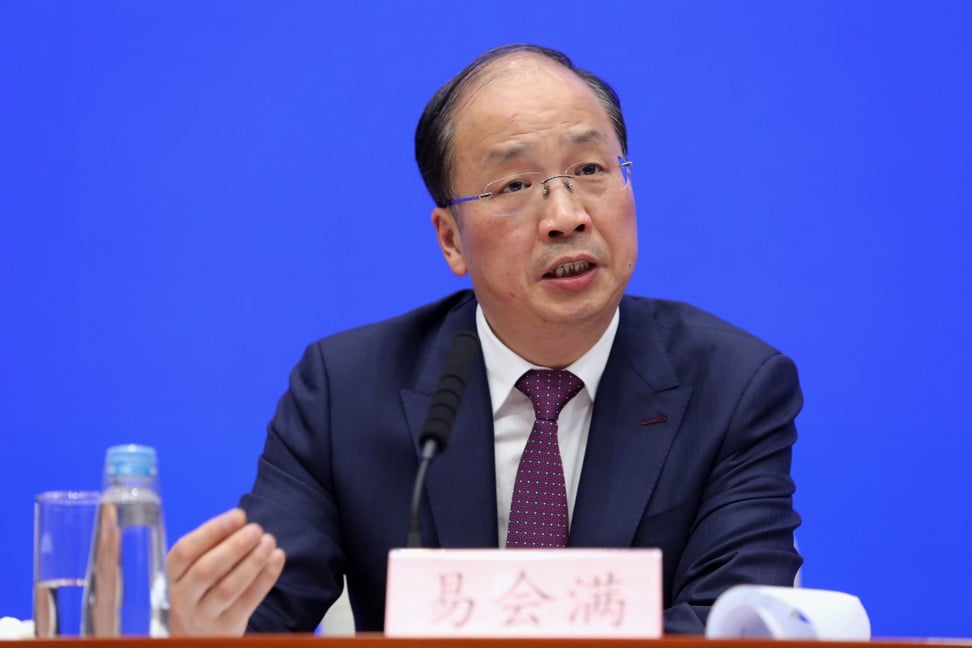
China’s securities regulator lays out his bottom line for corporate governance to undergird markets for external shocks
- The Shanghai index tumbled last week as trade war escalated
- Analysts are concerned about a heavier decline if the US extends tariffs to US$325 billion of Chinese goods
China’s securities regulator has reiterated his resolve to crack down on malfeasance, outlining four types of corporate activities that breach the bottom line of good governance, as the country’s stock market reeled from a week of roller-coaster swings.
“Corporate governance forms the pillar and the foundation of the capital market, without which a solid financial system cannot exist,” said the chairman of the China Securities Regulatory Commission (CSRC) Chairman Yi Huiman, during an event by the Association of public companies in Beijing. “Listed companies and major shareholders must strictly abide by four best practices of good corporate behaviour: no false information disclosure, no insider trading, no manipulation of stock prices, and nothing that harms the interest of listed companies.”
“The key point is corporate governance, including information disclosure and internal control,” Yi said, adding that the regulator will tighten the rules governing listed companies to improve the quality of listed companies.

Raising US tariffs to 25 per cent from 10 per cent on an extra US$325 billion of Chinese goods could affect about 0.5 percentage point of China’s gross domestic product, Fitch Ratings said.
“This would imply a cut to our Chinese growth forecasts in the absence of a more aggressive domestic policy response,” the rating agency said in a report, maintaining its “A+/Stable” sovereign rating on the nation. “But if trade tensions eventually lead to blanket US tariffs on all Chinese goods, the potential rating impact could be greater.”
Higher tariffs will eat into corporate earnings, with the 2019 results likely to be weaker than investors’ lofty expectations, while Chinese equities will fall more than other markets by the end of the year, said Capital Economics’ economist Oliver Jones.
The regulator has investigated 28 cases of irregularities this year, including 13 cases of misappropriation of funds. Five companies that missed their annual report deadlines will be investigated the regulator said on Friday.
The regulator will “strengthen on our regulatory deterrence power to ensure that wrongdoers pay a heavy price, while those who are counting on their luck would stop before it’s too late,” Yi said, adding that there is “zero tolerance” for collusion between companies and investments banks, law firms or auditors.
The CSRC will explore different ways to delist and expel “zombie” and shell companies from the stock market as soon as possible, he said.

